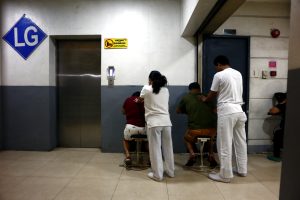Dementia is becoming a significant health challenge in Singapore, with an increasing number of people expected to develop these conditions due to an aging population.
Around 1 in 10 elderly Singaporeans suffer from dementia. In this article, we examine insights from two recent studies in Singapore. They shed light on the prevalence, risk factors, and management of dementia.
Silent Strokes and Vascular Pre-dementia
According to a five-year study by the Biomarker and Cognitive Impairment Study (Biocis), silent strokes may be the most common risk factor for vascular pre-dementia in Singapore. Vascular pre-dementia is a condition that can lead to cognitive impairment, including slowness of thought and difficulty with planning. The study found that 93% of the 344 participants with mild cognitive impairment had suffered from some form of silent stroke. Chronic conditions like hypertension and diabetes often associate with silent stroke.
To detect silent strokes, participants had to undergo magnetic resonance imaging (MRI) scans, which can detect white spots on the brain indicating damage. The study also found that beta-amyloids were found in just 9.6% of the participants with early signs of dementia. Beta-amyloids are protein clumps in the brain that increase the risk of Alzheimer’s disease.
The study highlights the need for better management of chronic conditions such as hypertension and diabetes to address dementia. Early detection and treatment of silent strokes may also help prevent the onset of cognitive impairment. Researchers are developing lifestyle intervention programs. The researchers are developing lifestyle intervention programs aimed at reducing the risk of dementia through cognitive exercises, physical activity, and dietary advice.
Sundowning Syndrome and Overnight Respite Programs
Sundowning syndrome is a condition where people with dementia experience confusion, restlessness, and agitation in the late afternoon and evening. A pilot night respite program has been launched by the Agency for Integrated Care (AIC) to give caregivers some respite if their loved ones experience difficulties sleeping at night, especially if they display sundowning behaviors.
Three care homes provide the overnight service from 7 pm to 7 am on weekdays. Trained care staff provide meaningful engagement and companionship for dementia patients, tailored to their interests. Depending on the care homes, geriatric chairs or beds are available for clients to sleep on when they feel tired and sleepy.
The program has benefited more than 10 clients since it began in December 2019. The AIC has advised caregivers to keep a structured daily routine for those with dementia. Also, they should also avoid caffeinated drinks after 3 pm or long naps in the day to minimise sundowning.
Conclusion
The two studies provide insights into the prevalence, risk factors, and management of cognitive disorders and dementia in Singapore. Firstly, silent strokes are a significant risk factor for vascular pre-dementia, which can lead to cognitive impairment. Early detection and treatment of chronic conditions like hypertension and diabetes may help prevent the onset of cognitive impairment. Additionally, the pilot night respite program is aimed at providing caregivers with some respite if their loved ones experience difficulties sleeping at night, especially if they display sundowning behaviors. The learnings from these studies underscore the importance of early detection, proper management, and support for people with cognitive disorders and dementia to improve their quality of life.














